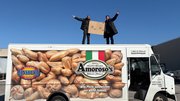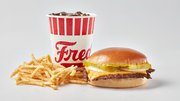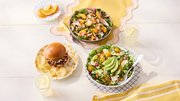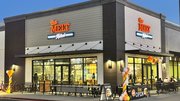News
Burgerville exec: 'Sustainability isn't just for plant-based burgers'
As plant-based meat options continue to appear on fast casual menus in an effort to offer customers more sustainable options, Burgerville is making its own commitment with an unlikely ingredient: beef.

November 7, 2019
As plant-based meat options continue to appear on fast casual menus in an effort to offer customers more sustainable options, Burgerville is making its own commitment with an unlikely ingredient: beef.
Now available at 10 of its locations in southwest Washington and Oregon, the No. 6 Burger — named after carbon on the elemental table — is a commitment to regenerative practices via ingredients that help sequester carbon, nurture the health of regional soils and contribute to the regional economy, Hillary Barbour, Burgerville director of strategic initiatives, said in a company press release.
"We have a commitment to welcoming all types of eaters, with delicious vegan and vegetarian options always on the menu. But we don't agree it's just plant-based options that can have a positive impact on soil and human health," Barbour said. "There is room for delicious, nutrient-rich beef that takes better care of animals and the land in our region's climate change discussion."
The burger, which costs $7.99, features local ingredients, including:
- Grass-fed, grass-finished beef from Carman Ranch in Wallowa County, where cattle graze on a mixture of native grasses to produce the most flavorful, nutrient-rich meat while improving the health/fertility of the soil.
- Buns locally made by Portland's Grand Central Bakery made from a mixture of whole-grain flours stone milled at Camas Country Mill, the first mill to operate in the Willamette Valley in 80 years. Smalls Family Farm in Walla Walla, Washington grows wheat for the bun's white flour.
- Cheddar from Face Rock Creamery, an independent company reviving small-batch cheesemaking with milk produced by grass-fed cows on the Oregon Coast.
"We're the first restaurant chain to put climate change on the menu, bringing us closer to our vision for the Pacific Northwest to be the healthiest region on the planet," Barbour said." The No. 6 is a product deeply rooted in the Northwest's regional food system, delivered at a scale that can make a genuine impact. And it tastes incredible."
Established in 1961, with headquarters in Vancouver, Washington, Burgerville has 41 locations throughout Oregon and Southwest Washington.
 ChatGPT
ChatGPT Grok
Grok Perplexity
Perplexity Claude
Claude















